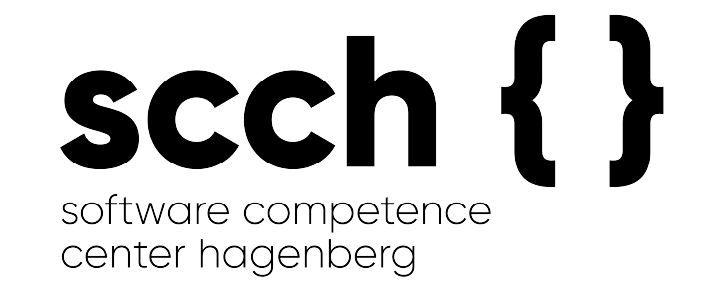DEXA 2022
The 33rd International Conference on Database and Expert Systems Applications
email: dexa@iiwas.org
Papers submission: https://easychair.org/conferences/?conf=dexa2022
IMPORTANT DATES
- Paper submission: 10 April, 2022 (SHARP)
- Notification of acceptance: 10 May 2022
- Camera-ready copies due: 1 June 2022
- Conference days: 22 - 24 August 2022
PUBLICATION
All accepted DEXA2022 papers will be published by Springer in their Lecture Notes in Computer Science (LNCS). LNCS volumes are indexed in the Conference Proceedings Citation Index (CPCI), part of Clarivate Analytics’ Web of Science; Scopus; EI Engineering Index; Google Scholar; DBLP; etc. Selected high-quality papers, after revision and extension, will be invited to be published, in a special issue of Knowledge and Information Systems (KAIS), Springer (IF = 3.161) and Transactions of Large Scale Data and Knowledge Centered Systems (TLDKS), Springer
SCOPE
Database, information, and knowledge systems have always been a core subject of computer science. The ever increasing need to distribute, exchange, and integrate data, information, and knowledge has added further importance to this subject. Advances in the field will help facilitate new avenues of communication, to proliferate interdisciplinary discovery, and to drive innovation and commercial opportunity. Since 1990, DEXA has been an annual international conference which showcases state-of-the-art research activities in database, information, and knowledge systems. DEXA provides a forum to present research results and to examine advanced applications in the field. The conference and its associated workshops offer an opportunity for developers, scientists, and users to extensively discuss requirements, problems, and solutions in database, information, and knowledge systems.
DEXA 2022 invites research submissions on all topics related to database, information, and knowledge systems including, but not limited to the points in the list below. We also welcome survey papers, provided that the survey fills a void or goes beyond existing overview papers.
- Acquisition, Modelling, Management and Processing of Knowledg
- Authenticity, Privacy, Security, and Trust
- Availability, Reliability and Fault Tolerance
- Big Data Management and Analytics
- Consistency, Integrity, Quality of Data
- Constraint Modelling and Processing
- Cloud Computing and Database-as-a-Service
- Database Federation and Integration, Interoperability, Multi-Databases
- Data and Information Networks
- Data and Information Semantics
- Data Integration, Metadata Management, and Interoperability
- Data Structures and Data Management Algorithms
- Database and Information System Architecture and Performance
- Data Streams, and Sensor Data
- Data Warehousing
- Decision Support Systems and Their Applications
- Dependability, Reliability and Fault Tolerance
- Digital Libraries, and Multimedia Databases
- Distributed, Parallel, P2P, Grid, and Cloud Databases
- Graph Databases
- Incomplete and Uncertain Data
- Information Retrieval
- Information and Database Systems and Their Applications
- Mobile, Pervasive and Ubiquitous Data
- Modelling, Automation and Optimisation of Processes
- NoSQL and NewSQL Databases
- Object, Object-Relational, and Deductive Databases
- Provenance of Data and Information
- Semantic Web and Ontologies
- Social Networks, Social Web, Graph, and Personal Information Management
- Statistical and Scientific Databases
- Temporal, Spatial, and High Dimensional Databases
- Query Processing and Transaction Management
- User Interfaces to Databases and Information Systems
- Visual Data Analytics, Data Mining, and Knowledge Discovery
- WWW and Databases, Web Services
- Workflow Management and Databases
- XML and Semi-structured Data
SUBMISSION GUIDELINES
Authors are invited to electronically submit original research contributions or experience reports in English. DEXA will accept submissions of both short (up to 6 pages) and full papers (up to 12 pages (excluding references and appendixes up to additional 3 pages)). The submitted manuscript should closely reflect the final paper as it will appear in the Proceedings. DEXA reserves the right to accept papers only as short papers, in which papers describe interesting and innovative ideas which still require further technical development.
Any submission that significantly exceeds length limits or deviates from formatting requirements may be rejected without review.
Formatting guidelines: http://www.dexa.org/formatting_guidelines
Online Papers Submission: https://easychair.org/conferences/?conf=dexa2022
REVIEW PROCESS
Submitted papers will be carefully evaluated based on originality, significance, technical soundness, and clarity of exposition.
Duplicate submissions are not allowed and will be rejected immediately without further review.
Authors are expected to agree to the following terms: "I understand that the submission must not overlap substantially with any other paper that I am a co-author of or that is currently submitted elsewhere. Furthermore, previously published papers with any overlap are cited prominently in this submission."
Questions about this policy or how it applies to a specific paper should be directed to the PC Co-chairs.
ACCEPTED PAPERS
All accepted conference papers will be published in a volume of "Lecture Notes in Computer Science" (LNCS) by Springer Verlag. Authors of all accepted papers must sign a Springer copyright release form. Papers are accepted with the understanding that at least one author will register for the conference to present the paper. Authors of selected papers presented at the conference will be invited to submit extended versions of their papers for publication in Knowledge and Information Systems (KAIS), Springer (IF = 3.161) and Transactions of Large Scale Data and Knowledge Centered Systems (TLDKS), Springer. The submitted extended versions will undergo a further review process.






